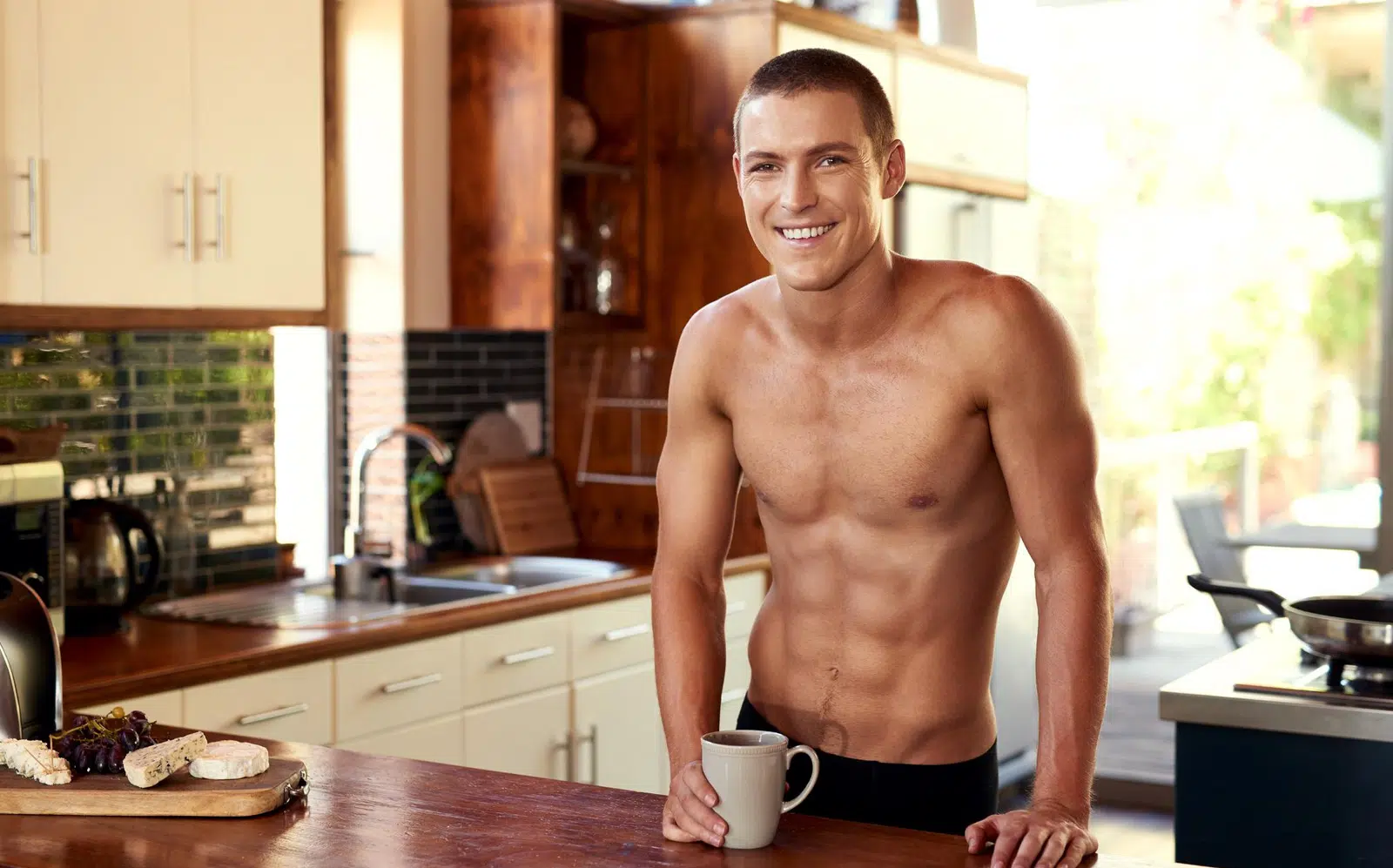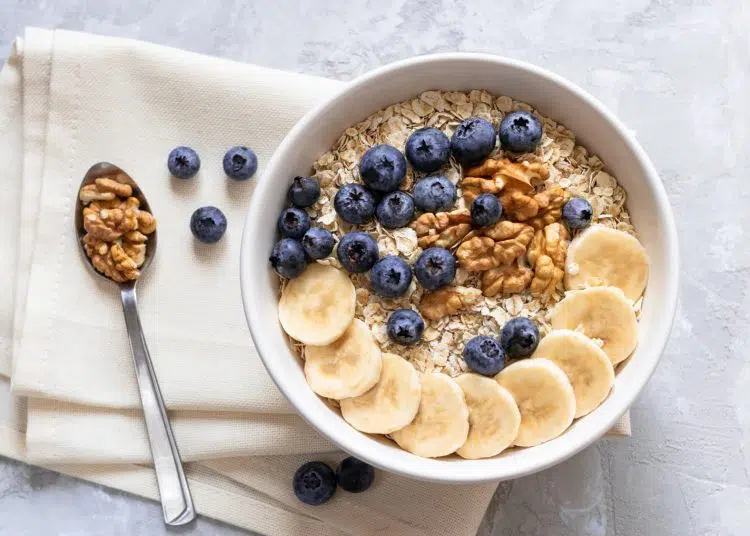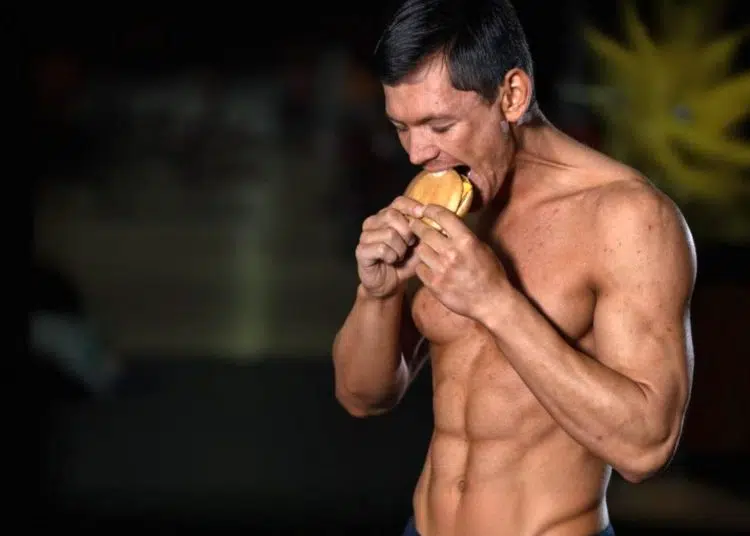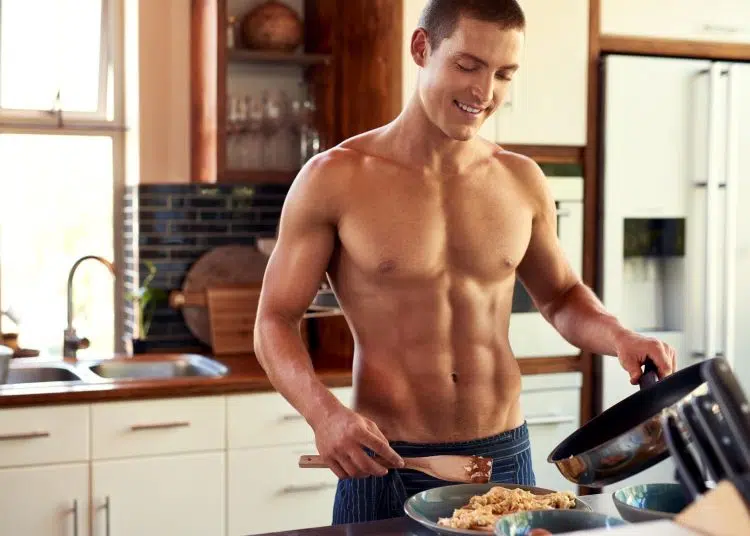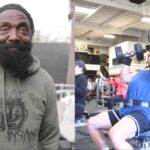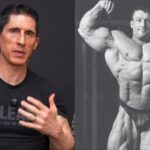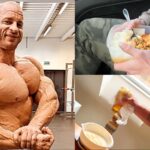One of the most common things you’ll hear in a gym is that you have to eat a lot of protein and not a lot of carbs to build muscle and stay lean. While that’s true, I wanted to see what would happen if you were to do the opposite — eat a ton of carbs and not a lot of protein.
With that in mind, I ate nothing but carbs for 30 days. Well, not nothing, because there’s no food that’s carb-only, and I would likely get severely ill if I didn’t eat carbs for 30 days. However, as you’ll see in just a few moments, my diet was mostly rice, pasta, fruits, and veggies instead of chicken and broccoli.
What were the results? Well, you’re about to see.
What Did I Eat On My All-Carb 30-Day Diet?
Before I show you my meal plan, I want to say that planning a balanced, high-carb diet was much more complicated than I expected.
I was going for 2,300 calories per day, and unless I wanted my diet to be three pounds of white rice, I had to get a bit creative so I don’t get:
- Bored from eating the same thing every day
- Severely nutrient deficient
So, with that in mind, this is what I ate for four weeks during this challenge:
Monday
- Breakfast: Oatmeal with mixed berries, honey, and a whole banana
- Morning Snack: Fruit smoothie with almond milk, apple, and mango
- Lunch: Vegetable stir-fry with white rice
- Afternoon Snack: Rice cakes with apricot jam
- Dinner: Whole wheat pasta with marinara sauce
- Evening Snack: Baked sweet potato with cinnamon and brown sugar
- Late Snack: Popcorn
Tuesday
- Breakfast: Smoothie bowl with watermelon, banana, and berries
- Morning Snack: Sliced apple with honey and cinnamon
- Lunch: Quinoa salad with mixed vegetables
- Afternoon Snack: Carrot and celery sticks with hummus
- Dinner: Stir-fried noodles with broccoli and bell peppers
- Evening Snack: Rice pudding with cinnamon
- Late Snack: Dried fruit mix (raisins, apricots, and dates)
Wednesday
- Breakfast: Overnight oats with almond milk, chia seeds, and strawberries
- Morning Snack: Orange
- Lunch: Rice bowl with black beans, corn, and salsa
- Afternoon Snack: Whole grain crackers with avocado
- Dinner: Couscous with roasted vegetables
- Evening Snack: Sweet potato fries with ketchup
- Late Snack: Sliced watermelon
Thursday
- Breakfast: Oatmeal with sliced apples, cinnamon, and maple syrup
- Morning Snack: Fruit smoothie with pineapple and banana
- Lunch: Lentil soup with whole grain bread
- Afternoon Snack: Popcorn
- Dinner: Spaghetti with tomato and basil sauce
- Evening Snack: Mixed berries with a drizzle of honey
- Late Snack: Rice cakes with almond butter
Friday
- Breakfast: Smoothie bowl with berries, banana, and granola
- Morning Snack: Grapes and a small handful of nuts
- Lunch: Barley salad with chickpeas, cucumber, and tomatoes
- Afternoon Snack: Apple slices with cinnamon
- Dinner: Vegetable curry with jasmine rice
- Evening Snack: Baked apple with a sprinkle of oats and cinnamon
- Late Snack: Cantaloupe
Saturday
- Breakfast: Oatmeal with peaches, chia seeds, and almond milk
- Morning Snack: Mixed fruit salad with a splash of orange juice
- Lunch: Quinoa bowl with roasted vegetables and tahini sauce
- Afternoon Snack: Celery sticks with peanut butter
- Dinner: Whole grain pasta with cherry tomatoes and zucchini
- Evening Snack: Sweet potato chips
- Late Snack: Apple slices with a dash of cinnamon
Sunday
- Breakfast: Oatmeal with mixed berries, honey, and walnuts
- Morning Snack: Smoothie with banana, spinach, and almond milk
- Lunch: Rice and bean burrito with salsa and corn
- Afternoon Snack: Carrot and celery sticks with hummus
- Dinner: Stir-fried tofu with vegetables and brown rice
- Evening Snack: Rice pudding with raisins
- Late Snack: Popcorn
How I Felt During My 30-Day All-Carb Diet?
Generally speaking, the experience wasn’t good, but then again, it wasn’t dreadful either. Here are a few notes on how it went:
I Lost Appetite and Had Stomach Issues
What happened with my appetite is very hard to describe, but I’ll do my best.
The first few days were fine. I was eating like I usually do, just a lot more often, because I wanted to keep the meals small. However, after four or five days, my desire to eat disappeared. I love eating fruits and veggies, probably much more than an average Joe, but knowing I had to eat a full plate of rice in a few hours just threw me off. I was hungry but didn’t want to eat if that makes sense.
Also, my stomach started acting quite weird after a few days. It would feel heavy and empty at the same time, as if I had a spoonful of rocks for lunch. It was very unpleasant and didn’t go away for the first two weeks.
After two weeks, I started seeing some improvements, and by the end of the challenge, the major stomach issues were mostly gone, so it’s likely that my body simply needed some time to get used to a new diet.
However, bloating was a consistent issue until the very last day.
My Energy Was All Over the Place
One might assume that a high-carb diet, given its energy-boosting properties, would lead to sky-high energy levels, but one would be wrong. Initially, I did have these energy spikes, particularly after breakfast and snacks (cause those often contained honey), but I wouldn’t call that a good thing.
The surge in blood sugar provided a short-lived boost, and yes, that would get me through my workouts, but I would crash so hard in the afternoon. (1)
I felt lethargic and sluggish after lunch, so much so that I had trouble doing anything. My productivity took a major hit, my mood went downhill, and I was super irritable. Knowing I had to eat rice, pasta, and popcorn for the rest of the day didn’t quite help. Honestly, this was the worst thing about the 30-day all-carb diet.
I Lost Weight And a Bit of Muscle
Maintaining muscle mass was somewhat of a concern as proteins play a crucial role in muscle repair and growth. However, despite the significant reduction in protein intake (I was eating maybe 40 grams of protein per day, sometimes 50), I didn’t see a massive decrease in muscle mass. I did lose some volume in my arms and thighs, but nothing too drastic.
Considering I got super lean during these 30 days (as I was rarely hitting my goal of 2,300 calories because it was hard to eat), I only lost about a 1/3 of an inch in my bicep circumference and an inch in my thighs, which isn’t too bad considering I lost eight pounds.
However, one thing I did notice is that my muscles appear softer. I don’t see the same level of fullness and maturity, and that’s one thing I didn’t expect to happen.
On a more positive note, I have never been leaner in my life. When I get a little bit of a pump in, you can see striations in my shoulder, chest, and thighs. It’s remarkable, indeed. My waist has also never been slimmer, so if you’re wondering if you could lose weight this way, you absolutely can. Maintain a calorie deficit, work out a bit, and you’ll be good to go.
I Felt Weaker Than Usual
I noticed a decline in my overall strength. My usual weightlifting sessions became harder and harder as days went by. I just didn’t feel strong, so I had to progressively deload as weeks went by.
I still did my best in the gym, as I wouldn’t feel tired or depleted, but the power was clearly missing. By the third week, I was lifting about 20 percent less than usual.
My Stamina Improved
Interestingly, while my strength suffered, my stamina saw a slight improvement. I felt I could cycle or run for days, but that was to be expected. Neither of those things requires a ton of explosive power or significant muscle engagement, and considering I was practically half-man half-glucose at this point, cardio just felt easy.
However, muscular endurance wasn’t there. I would get tired by the third exercise, and it didn’t matter if I was doing compound or isolation lifts. I would just get tired.
I tried to do a HIIT workout with my gym buddy sometime during the second week, and I just gave up midway through.
I Had Trouble Sleeping
My sleep was horrid this past month. Even though I did my best to include some healthy fats in my diet, the stomach issues and varying energy levels wrecked my sleep.
I would toss and turn almost every night and frequently wake up. I would wake up tired, and getting out of bed in the morning would be quite hard for me, which had never happened to me before. I was always an early bird, and for the first time in my life, I would sleep in regularly just because I didn’t feel like I had enough sleep.
Brain Fog Was a Massive Issue
Brain fog was one of the biggest issues for me. I had a tough time concentrating on the simplest tasks in the afternoon, so if I hadn’t done most of my work in the morning before hitting the gym, I would’ve been in a major problem and would probably have had to quit the challenge early on.
Since the brain is mostly fat (about 60 percent), you need sufficient fats in your diet to provide structural support to brain cells, form cell membranes, and protect neurons’ integrity. (2)
I Saw Some Inflammation
A high-carb diet can lead to increased inflammation, so I paid special attention to it. I tried to mitigate the issue by including a lot of whole grains and fruits in my diet, but the overall carb consumption also had a pro-inflammatory effect on me.
I noticed some joint stiffness and muscle soreness, which lingered longer than usual after workouts. Also, my feet would swell up quite a bit, which has also never happened before. Was this due to a lack of B vitamins or just a response to a ton of carbs — I can’t say for sure. However, I’ve been off the high-carb diet for a week, and most of these symptoms are now gone, so diet was definitely a factor.
Constipation Was a Big Problem
Contrary to what one might expect from a high-fiber diet, constipation was a recurring problem for me. While I consumed a good amount of fiber, the lack of adequate fats led to digestive “sluggishness,” to put it mildly.
Staying hydrated helped mitigate some of the constipation issues, but the overall discomfort persisted throughout the 30 days. I would visit the restroom every three to four days, and my stomach would constantly feel rock hard.
Could You Eat Nothing But Carbs and Still Be Healthy?
Dr. Eric Berg, a ketosis and intermittent fasting specialist who became famous on YouTube for his videos on nutrition, had this to say about eating only carbs:
“You’re going to have a lot of digestive problems. You’ll have constipation; you’ll have a loss of appetite. I mean, even that vagus nerve, without the B1, can’t make hydrochloric acid. And so, if you were to just put someone on a white rice diet, they probably would not last one to two months before they had a heart attack. Now, this is all dependent on the person’s genetics, how much nutrition they have built up, and, of course, what else they ate. The point is that when you eat only carbohydrates, there’s a lot of health problems that are going to occur.”
Wrapping Up
Would I Do The All-Carb Diet Again? Absolutely not. I would never personally follow a high-carb-only diet again. While it may not be incredibly harmful if done carefully, it’s certainly not the healthiest choice.
The human body is not designed to eat so much carbs. A diet needs to be balanced and include proteins, healthy fats, and carbs. Despite the popular beliefs and even more popular vegan and carnivore diets, you actually need food from both animal and plant sources, and you shouldn’t avoid any of them unless there’s a medical reason to do so.
For me, a high-carb diet wasn’t a pleasant experience. I have already reintroduced proteins and fats into my diet and feel so much better.
If you have any questions about a carb-only diet, drop them in the comments below, and I’ll be happy to help!
References:
- Thayer RE. Energy, tiredness, and tension effects of a sugar snack versus moderate exercise. J Pers Soc Psychol. 1987 Jan;52(1):119-25. doi: 10.1037//0022-3514.52.1.119. PMID: 3820066.
- Chang CY, Ke DS, Chen JY. Essential fatty acids and human brain. Acta Neurol Taiwan. 2009 Dec;18(4):231-41. PMID: 20329590.
Tip: If you're signed in to Google, tap Follow.


